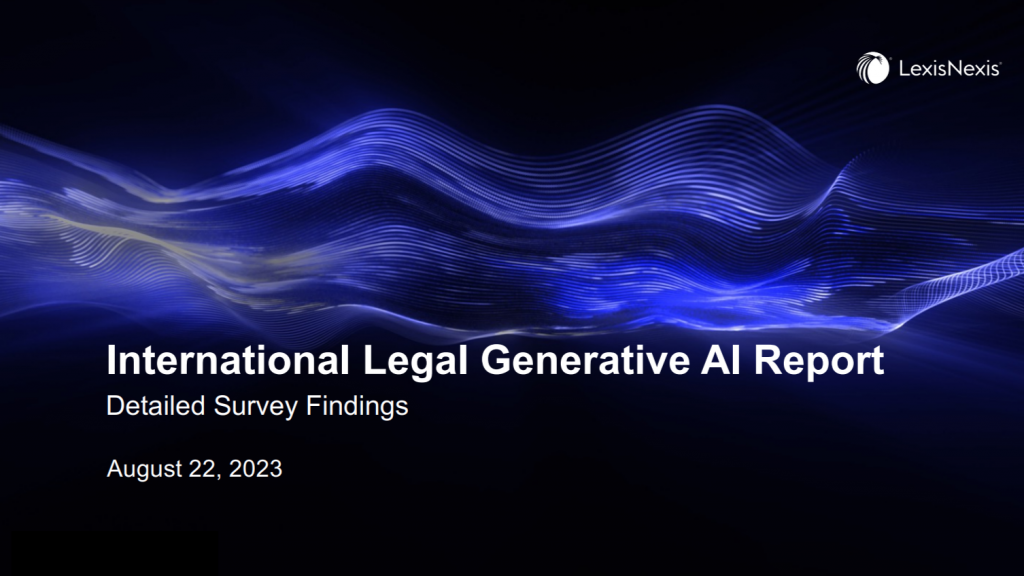A new international survey of lawyers, law students and consumers finds that nearly half believe generative AI will have a significant or transformative impact on the practice of law.
Conducted by LexisNexis and released this morning at ILTACON, the annual conference of the International Legal Technology Association, the survey polled 7,950 lawyers, law students and consumers in the U.S., U.K., Canada and France about their overall awareness of generative AI and their perspectives on its potential impact on the practice of law.
(Compare this to the generative AI survey released yesterday at ILTACON by Everlaw, in partnership with the Association of Certified E-Discovery Specialists (ACEDS) and the International Legal Technology Association.)
Almost half of respondents (47%), believe generative AI will have a significant or transformative impact on the practice of law. Another 45% believe generative AI will have some impact, while only about 7% believe generative AI will have no impact.
Among corporate counsel, the survey finds, there is an overall expectation that the law firms that represent them will adopt AI technology. Sixty percent of corporate counsel expect law firms to use cutting-edge technology such as generative AI tools, and just 10% disagree with that.
Among law firms, 52% believe their corporate counsel clients will expect them to use generative AI tools, while only 17% disagree.
Broken down by countries, 67% of U.S. corporate counsel, followed by 61% of French counsel, 59% of U.K. counsel, and 53% of Canadian counsel, expect their law firms to adopt generative AI tools.
How will these tools be used? Lawyers in the survey see the highest potential for generative AI to be in assisting them in research (65%). Other leading uses, lawyers say, are for drafting documents (56%), document analysis (44%), and email writing (35%).
Overall, the survey results show high awareness of generative AI, with 89% of legal professionals having heard of generative AI tools. For consumers, awareness is lower (61%).
Most lawyers have at least some concerns about the ethical implications of generative AI. A third of lawyers say they have significant or fundamental concerns about the ethical implications.
Consumers who responded to the survey largely use generative AI for researching legal topics (60%). Many would consider using AI for legal assistance to create a will (40%), set up a business (37%), and develop a rental agreement (39%).
The survey was conducted across 7,950 people, including 3,752 lawyers, 1,239 law students, and 2,959 consumers in the US, UK, France, and Canada between March and July 2023.

